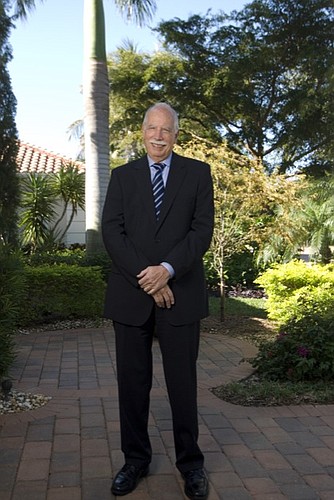- November 26, 2024
-
-
Loading

Loading

Florida's economy may still be struggling, but it's telling that Stuart Schweitzer is willing to wager his own money that the Gulf Coast is a good place to invest.
That's important because Schweitzer counsels some of the nation's wealthiest investors. He's the vice chairman and global market strategist for J.P. Morgan Private Banking, responsible for global financial markets and economies with an emphasis on asset allocation and market strategy. He's a frequent guest on the business-news channels, including CNBC and Bloomberg TV, and widely quoted in the business press.
Schweitzer bought a home in Estero in April 2010 for $692,500, Lee County property records show. “As an investor, I'm a contrarian,” Schweitzer chuckles.
While he acknowledges his own timing was a little early, he says Florida's real estate development cycle is reaching bottom. “We also looked at Sarasota, which was very compelling,” he notes.
Schweitzer says he sold a home in New Jersey before buying the house in Estero, though he doesn't think his own experience is necessarily a reflection of an improving migration-to-Florida trend. “The big thing that will free the baby boomers is the ability to sell their homes up north,” he says.
But Schweitzer notes that most boomers still have not come to terms with today's lower property valuations. “The majority could sell, but they still have visions of what their homes were worth,” he says. “They still don't want to accept reality.”
Now a Florida resident, Schweitzer, 68, says he doesn't have to be in New York City to crunch numbers. “The analytical part of my job can be done anywhere,” he says.
But the 36-year veteran of J.P. Morgan is constantly on the move. In the span of a week recently, he's visited with clients in Tampa, Sarasota, Naples, Orlando, Boca Raton and Miami, squeezing in a half-day round-trip to New York City. “I'm still working because I love what I do,” Schweitzer says.
Fact is, J.P. Morgan is making a big push in Florida because of its growing population and its influence in the U.S. and Latin America. From Pasco to Collier counties, J.P. Morgan spent $160 million to build new branches last year and the banking giant plans to exceed that in 2012. Within a year, the company plans to have 350 branches statewide. “Florida is a major priority for J.P. Morgan,” Schweitzer says.
Schweitzer says he sees signs that economic conditions are improving, such as credit availability, job growth and healthy corporate profits and balance sheets. “Florida is already benefiting to some degree because tourism is back up,” Schweitzer says. “There's a lot of exciting stuff going on down here.”
But when he's visiting with clients, Schweitzer reports continuing anxiety over the future. “Right now, I find most people are still very worried even though the recession is technically over,” he says. There are many reasons, including the U.S. elections, the European financial crisis and high debt levels.
Schweitzer says the top priority for Florida now should be to boost its emphasis on education, particularly for younger children. “Florida gets a bit of a bad rap for education,” he says. “America is only going to thrive if we're educated.”